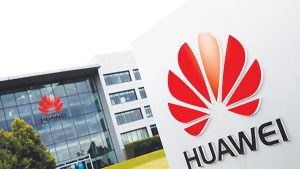Nvidia Corp.’s aborted attempt to buy British semiconductor company Arm Ltd. isn’t the only chip deal to fail at the hands of regulators, yet its high-profile defeat portends a tough outlook for mergers and acquisitions in what has become one of the world’s most politicised industries.
GlobalWafers Co, a Taiwanese maker of sliced silicon upon which chips are produced, has called off its planned $5 billion purchase of Germany’s Siltronic. The takeover had received regulatory nod in various nations, including China, but was blocked by Berlin for unspecified reasons.
Among the challenges for dealmakers is the fact that semiconductor companies operate across numerous jurisdictions, with a rejection in just one of those locales often enough to scuttle the whole transaction. SoftBank Group Corp.’s sale of Arm to Nvidia was unique in that most regulators around the world were skeptical of the deal.
Heightened tensions between the US and China have morphed into both sides viewing semiconductors as an issue of national security, resulting in government financial support coupled with increasing restrictions on sales and acquisitions. The components are used to process and store data, making them crucial for items as mundane as sports watches to those of strategic importance including weaponry. A decision by Washington to limit sales of advanced chips to Huawei Technologies Co. severely hurt the company, spurring Beijing to double-down on its own plans to build a home-grown sector.
Wise Road Capital Ltd., a Chinese state-backed private equity firm, last year called off its planned $1.4 billion purchase of South Korea’s Magnachip Semiconductor Corp. after the Committee on Foreign Investment in the US probed the deal for national security risks. Wise Road has subsequently announced plans to buy a number of Chinese factories from Taiwan’s ASE Technology Holding Co., the world’s biggest provider of chip packaging and testing services, for a total of $1.46 billion.
At the time of writing, it doesn’t appear that CFIUS has looked into that deal, which was announced on December 1, 2021, but it’s the type of transaction that will likely face US scrutiny given the importance of the Taiwanese chip sector to American interests.
China has also ended deals before they could be completed. A $44 billion merger between Qualcomm Inc. and NXP Semiconductors NV was scrapped in 2018 because Beijing objected.
With billions of dollars on the line, and massive breakup fees for failed transactions bankers and boards of directors are likely to be a little chastened in their hunt for the next big chip deal.
—Bloomberg
Not all deals are getting scuttled, though. In January, Beijing approved a merger between US companies Advanced Micro Devices Inc. and Xilinx Inc. The State Administration for Market Regulation asked AMD not to discriminate against Chinese clients and to continue supplying Xilinx products to the country.
—Bloomberg
 The Gulf Time Newspaper One of the finest business newspapers in the UAE brought to you by our professional writers and editors.
The Gulf Time Newspaper One of the finest business newspapers in the UAE brought to you by our professional writers and editors.
